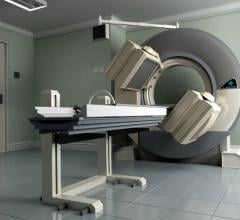September 14, 2011 – The Delaware Insurance Commissioner’s announcement that Blue Cross Blue Shield of Delaware (BCBSD) will support physicians’ use of an American College of Cardiology (ACC) program to make decisions about certain diagnostic imaging tests is a win for patients and a win for quality-of-care, said ACC CEO Jack Lewin, M.D.
Commissioner Karen Weldin Stewart on Tuesday announced an agreement with BCBSD that the company will pay for Delaware physicians to participate in the ACC’s online appropriate-use criteria-based program, FOCUS: Cardiovascular Imaging Strategies. The program supports physician decision-making and the use of best practices for decisions regarding cardiovascular diagnostic imaging. The agreement followed a state review of patient complaints about practices related to pre-authorization for nuclear cardiac imaging tests and concerns raised in the report about differences in criteria used by physician and insurers for nuclear cardiac imaging tests.
“In order to solve this problem, we need to get everyone on the same page as to when the studies are appropriate,” Stewart said in announcing the agreement. “With this new program, BCBSD is using the best criteria developed by the expert physicians, the American College of Cardiology, and will pay to have Delaware physicians using the best medical criteria.”
FOCUS uses a computer-based tool developed by the ACC to help guide physicians when ordering imaging tests. The tool applies nationally accepted, transparent and physician-developed appropriate use criteria to guide ordering of nuclear cardiac imaging tests. FOCUS allows local physicians to consistently apply appropriate use criteria to determine when patient tests are needed. Importantly, the program provides feedback reports on the patterns of appropriate use to physician practices and health plans. FOCUS participants then use the reports to complete action plans and share best practices.
“This decision is a win for patients and a win for evidence-based medicine,” Lewin said. “Commissioner Stewart and her staff should be commended for providing a solution that is based on physician-developed appropriate use criteria. This type of approach results in better care for patients and can ultimately save money. We hope Delaware will be a model for managing medical costs by focusing on patient-centered decision making and quality care.”
For more information: www.cardiosource.org/focus


 June 05, 2023
June 05, 2023 







